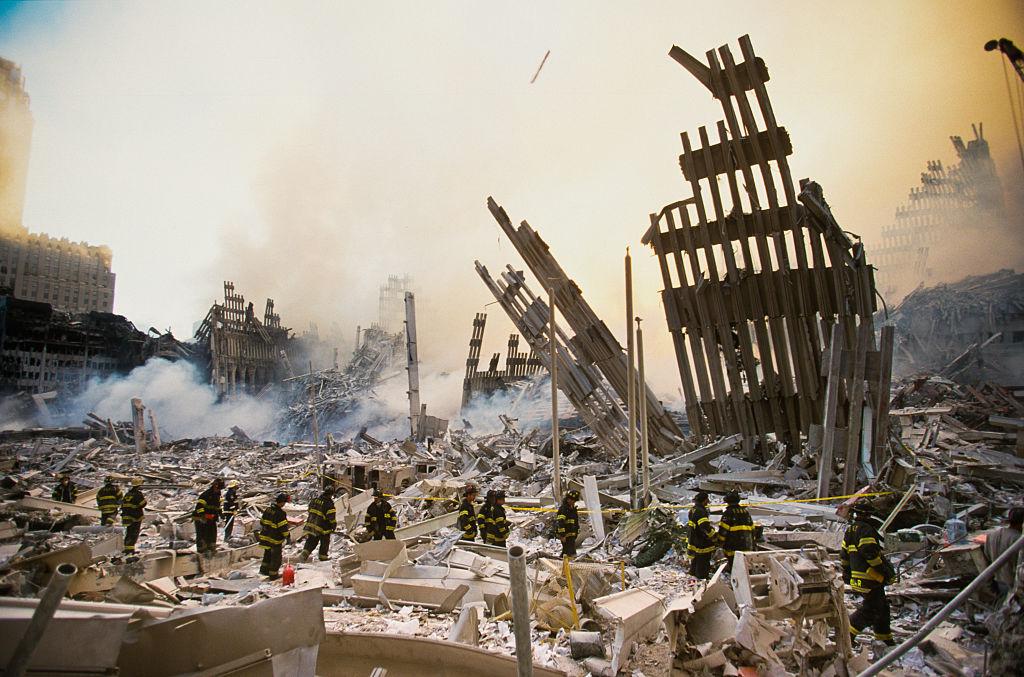Heeding the lessons of 9/11
Posted By Amin Saikal on September 11, 2020 @ 15:00

The anniversary of the 11 September 2001 terrorist attacks on the United States reminds us once again not only of its tragic consequences, but also of how fragile world politics has become since those events. The threat of violent extremist actions hasn’t dissipated, nor have we managed to build a stable global order in which the causes of extremism—whether religious or secular—are effectively addressed. This, together with Sino-American rivalry and the savagery of Covid-19, has led the world to a very risky transitional phase that, more than at any other time since World War II, calls for a wiser strategy of multilateral cooperation.
We all remember where we were when al-Qaeda unleashed its 9/11 horror, targeting the political, economic and military power of the US. Osama bin Laden and his ideologues naively believed that exacting revenge on the US for its interventionist behaviour would put the Muslim world on a sounder Islamic evolutionary course of change and development. They overlooked that it would also compel the US to engage in a more interventionist ‘war on terror’ on an almost global scale.
The American reprisal began with military operations in Afghanistan to punish the medievalist Islamic regime of the Taliban for harbouring bin Laden and his operatives and refusing to hand them over to the US. Then followed operations in dozens of other countries, and the 2003 invasion of Iraq based on false intelligence that Saddam Hussein’s secular dictatorship had linked up to Islamic al-Qaeda and had acquired weapons of mass destruction.
The US intervention in Afghanistan, backed by NATO and non-NATO allies, proved to be not only very costly, but also largely illusionary as the enemy could not easily be identified and targeted. Despite Washington’s claim that the US was capable of fighting two or even three wars at the same time, America was soon overstretched. While it had a plan for war, it had no effective strategy to bring peace to either Afghanistan or Iraq.
As former US secretary of defence Robert Gates recalled in his 2014 memoirs, the US was plunged into deadly fighting in countries whose national and regional complexities it had no clear understanding of. While the Afghan war dragged on as a ‘good war’ in the hope of a victory, the Iraq situation quickly turned into a mess. It seemed that the US had learned nothing from its Vietnam fiasco more than three decades earlier and the Soviet Union’s defeat in Afghanistan after a decade-long occupation in the 1980s.
The US finally pulled its forces out of Iraq by the end of 2011, leaving behind a broken country, only to come back to combat the rise of the so-called Islamic State four years later. Notwithstanding Washington’s triumphant claims, Iraq remains in the grip of long-term instability and insecurity, as does Afghanistan. Iraq has become a theatre of rivalry between two arch-enemies, the US and Iran, with Tehran calling more of the shots today in Baghdad than Washington does.
IS is no longer a territorial entity, also largely due to Russian–Iranian–Lebanese Hezbollah axis operations in Syria, but it hasn’t lost its capacity to strike targets in both Iraq and Syria. It’s hard to see when normal life will return to the traumatised populations of Iraq and Syria.
As for Afghanistan, the US initially toppled the Taliban government, but it didn’t defeat its forces. It dispersed al-Qaeda’s leaders and main operatives from the country but didn’t destroy them. Both forces regrouped and they are in close linkage to this day, fighting the US and its allies in a protracted war to the point of exhausting them.
President Donald Trump, a longstanding critic of America’s Afghan adventure, has found it expedient to cut US losses and make peace with its erstwhile enemy, the Taliban. Although most of the more than 100,000 US personnel in Afghanistan were withdrawn under President Barack Obama by the end of 2014, this year’s US–Taliban peace deal is enabling the withdrawal of most of the remainder of forces by the time of the US elections in November.
The Afghan government remains weak and corrupt, with writ over no more than 50% of the country, which gives the Taliban and their supporters, Pakistan in particular, reason to smell victory. Even al-Qaeda, which has become decentralised and smaller, and its rival, IS, which has gained ground in Afghanistan, can be optimistic about their chances in the war-torn country, all at the continued cost of the suffering Afghan people.
Will American and allied leaders look back and question what was gained from the conflicts in Iraq and Afghanistan and, for that matter, from the war on terror as a whole? As more conflicts rage in theatres from Yemen to Libya, violent extremist individuals and groups from both sides of the Muslim and Western divide have remained resilient. The world appears to have paid a high price for the lack of a clear and sound political strategy focusing on dealing with those root causes of extremism that defy military solutions.
While Covid-19 has dampened to some extent the activities of violent extremist groups, and a disunited world has increasingly become concerned about a cold war between the US and China, the memory of 9/11 should warn us not to be complacent about the need for a viable world order that can lift us out of the geopolitical and ideological conflicts in favour of shared human values.
Article printed from The Strategist: https://aspistrategist.ru
URL to article: /heeding-the-lessons-of-9-11/
Click here to print.